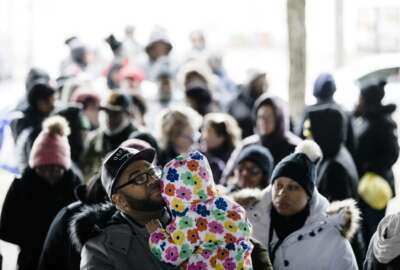Hate to rain on your parade, but…
Things are looking good. but the possibility of yet another government shutdown remains, as today's guest columnist Abraham Grungold points out.
Midway through the year, things are looking pretty good for federal workers and retirees. Some examples:
- Administration efforts to devalue the FERS/CSRS retirement programs have gone nowhere. Again.
- The House has approved a 3.1 percent white collar federal pay raise despite White House efforts to skip any automatic January 2020 adjustment. The raise, if approved by the Senate, would give 2.6 percent to all eligible workers and the rest would be spread out in the form of different raises for high wage locality zones like New York City, Washington- Baltimore, San Francisco-San Jose, Los Angeles, Philadelphia, Dallas-Ft. Worth and Houston.
- If you are invested in any of the Thrift Savings Plans stock, bond or treasury securities funds, things are also looking good. Despite predictions that the record long bull market is about to crash, all the TSP funds wracked up gains in June. The biggest increases were in the stock-indexed C, S and I funds.
So things are looking good. But, the possibility of yet another government shutdown is still there as today’s guest columnist Abraham Grungold points out in the post below.
Are you ready for the next furlough?
The next furlough may hit federal employees in four months. Have federal employees learned the hard lessons from the last one or are they thinking that it will never happen again? Historically, furloughs have been long and short, and they have been under Republican and Democratic administrations.
I have been a federal employee since 1985. And I have lived in South Florida since 1996.
I treat a potential federal furlough like I treat hurricane season. Each year, I understand the potential of one, prepare to be ready and not be overwhelmed. Cash, food, medicine, gas, water and batteries are the main staples of surviving a hurricane. The same goes for a furlough. Cash, food and medicine are necessary when you do not have a paycheck coming in.
Everyone should have a cash reserve for three months to pay your bills whether it is a furlough, hurricane or if you experience a physical injury.
With respect to a furlough, you need funds in two phases of the furlough. You need funds during the furlough and after the furlough. Hopefully you receive back pay and if you do not receive back pay that reserve would be critical. Being prepared prevents your anxiety and panic.
During the last furlough, I only cut back on eating out and playing golf. I had enough cash on hand to last a minimum of six months.
Saving cash for a furlough is a simple as going without that Starbucks gourmet coffee, a lottery ticket and that weekly breakfast with friends. Foregoing that daily Starbucks for the next four months totals to $600. Skip a daily Starbucks coffee for a year and you can save $1,825.
Being prepared can prevent you from anxiety and the unknown during a furlough.
For more tips you can find Abraham Grungold, financial coach, on LinkedIn or Facebook, FERS Federal Employees.
Nearly Useless Factoid
By Steff Thomas
Copyright © 2025 Federal News Network. All rights reserved. This website is not intended for users located within the European Economic Area.
Mike Causey is senior correspondent for Federal News Network and writes his daily Federal Report column on federal employees’ pay, benefits and retirement.
Follow @mcauseyWFED





